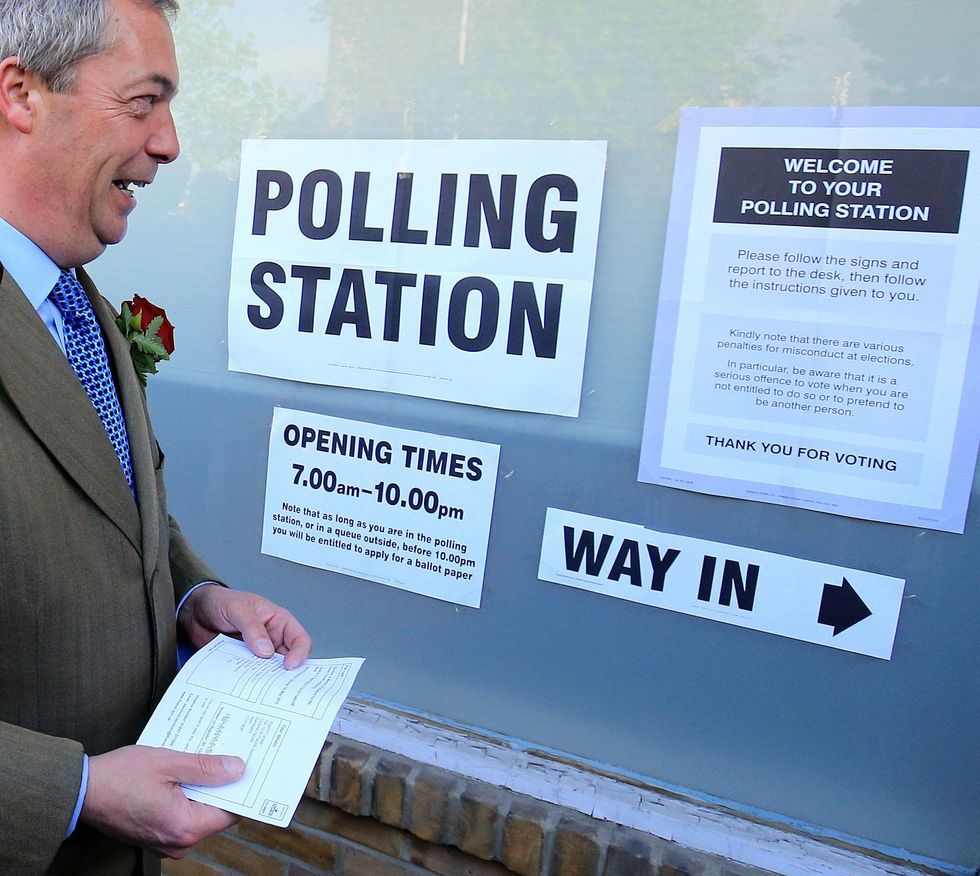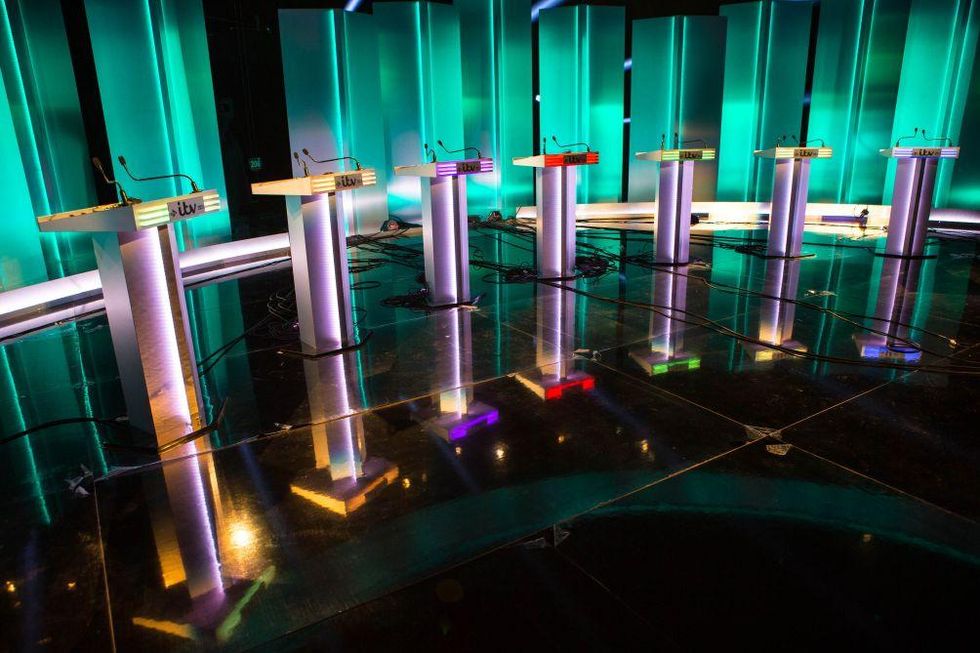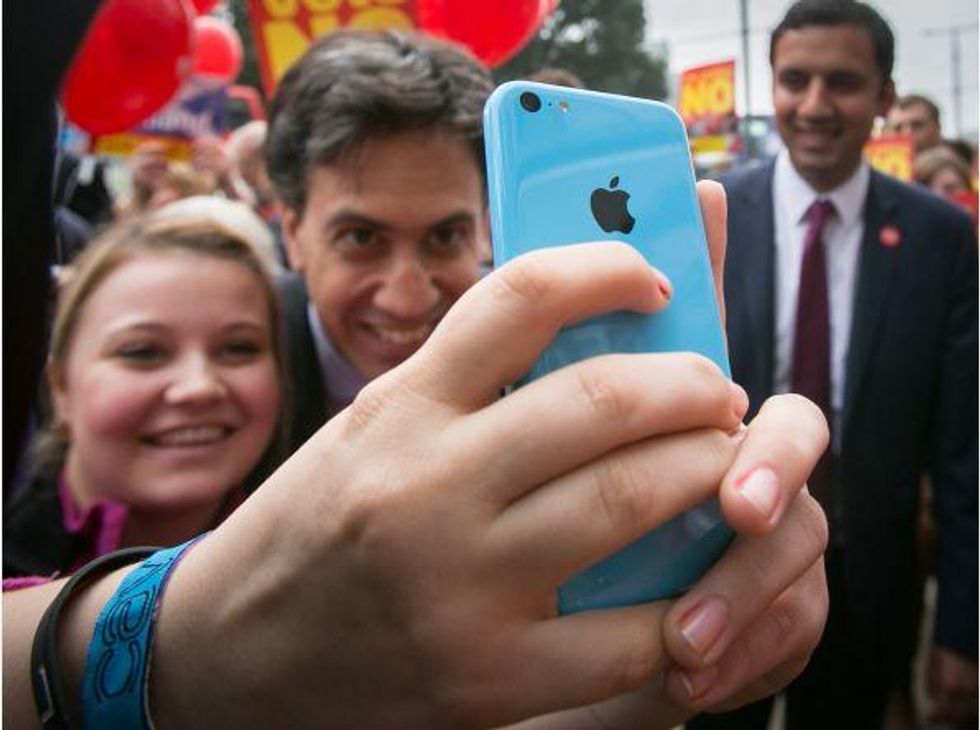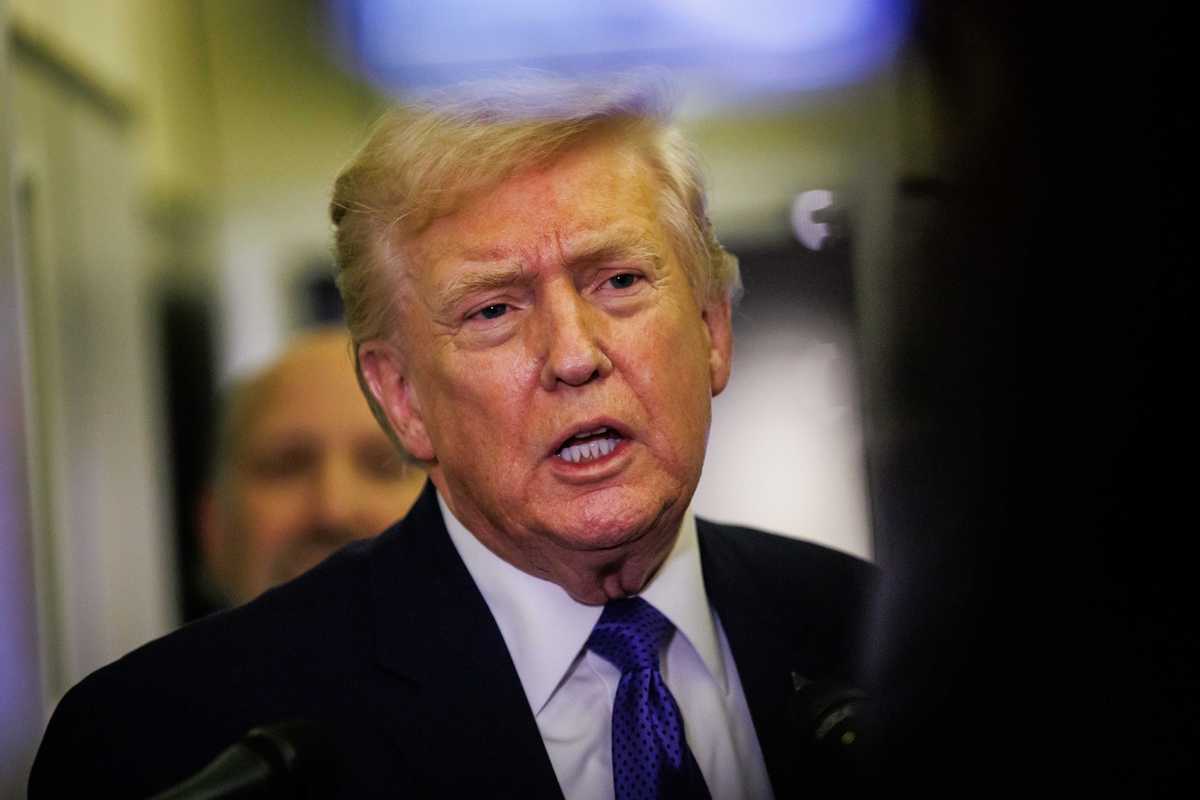News
Oliver Duff (edited
May 08, 2015
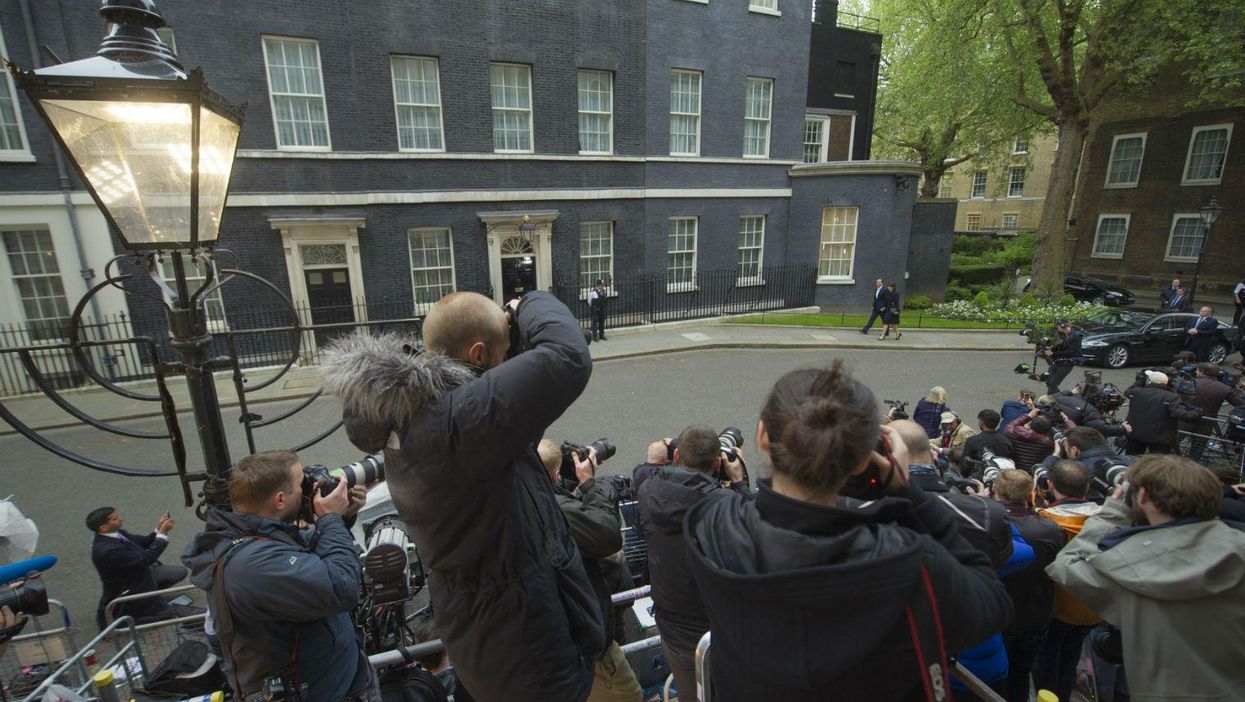
David Cameron arrives at Downing Street on Friday morning with his wife Samantha
1. Politicians should meet voters who don't belong to their party
Politicians are now so scared that their election campaign will be derailed by a “Gillian Duffy moment” that they prefer not to meet anyone who is not a registered party supporter.
The one alternative is to canvas in a workplace setting – where people can be sacked if they speak out of line.
This is a huge shame. Politicians should take the risk of walkabouts and open meetings, and the media should cut them some slack.
Doing so would help to restore trust in politics and bring future election campaigns to life.
2. End the age of meaningless political sound bites
“Hard-working families who play by the rules”, “long-term economic plans” and “strong, stable government” should be consigned to the sloganeering history books. Politicians need to start speaking like the rest of us again.
3. Time to introduce proper proportional representation
One thing certain about this election result, whatever it eventually turns out to be, is that it will be the most unfair in many years. Even if you don’t like Ukip, it is wrong for a party likely to get the support of one in 10 voters to end up with only one or two out of 650 seats in the House of Commons.
The 2011 referendum to introduce constituency-level PR-lite was rightly rejected by voters but the case for proper proportional representation, so fewer votes are wasted, is stronger than ever.
4. Politicians need to say how they will pay for what they promise
The Conservatives have been most guilty on this point during the campaign. Cameron has pledged £8bn more for the NHS but won’t say where the money is coming from.
He has also promised to cut welfare spending by £12bn but only identified where £2bn of those cuts will come from. Equally, if you are planning to make cuts there is a moral obligation to explain who will lose out.
Such chicanery underestimates the intelligence of voters and further undermines trust in politics and politicians.
5. Voting should be compulsory
One of the more noticeable things about this campaign is the number of people who look at you blankly when you ask them how they are likely to vote. Too many simply shrug and say, “Oh, I don’t vote.”
It is time to make people turn up and vote by law. They should not have to vote for any particular party – there should be a “None of the above” option on every ballot paper – but everyone should have to make that conscious decision or face a fine.
6. Televised debates should be enshrined in law
Both at this election and the last, the leaders’ debates have defied expectations. They have been surprisingly high-calibre and have made for illuminating television and boasted significant audiences.
But we only had one real debate this time around because of Cameron’s reluctance to engage with Ed Miliband head to head. It is quite possible that, unless things change, at the next election they won’t happen at all.
The next government should set up a commission with the job of laying down the broad ground rules for future televised debates and legislating to make sure they happen in every subsequent election.
7. The public needs to pay for politics
The battle buses, posters and endless pieces of election literature that have clogged up doormats for the past four weeks have mainly been funded not by small donations but by millionaires, big business and the trade unions.
This is wrong and it distorts our political system. If the public wants politicians that serve it, rather than vested interests, it is going to have to pay for politics from general taxation.
Each party should get a set level of state funding and a cap of £1,000 should be introduced on all political donations. This would do more than anything else to clean up politics and level the political playing field.
8. Allow voting on mobile phones, to boost turnout
Our steam-powered democracy needs to be hauled into the digital age. Mobiles are secure enough to bank with. As for electoral fraud – you don’t need to show ID at the moment.
To deal with possible coercion, Estonia has a solution: allow the voter to cast their ballot as many times as they want, but only the last ballot cast counts.
9. Weekly hustings
Oblige every UK constituency to stage weekly candidate hustings during the campaign, so residents can question their prospective MPs.
Britain has too many dead boroughs, safe seats where the parties barely bother campaigning. That disenfranchises most of the British electorate. Make safe-seat candidates work hard.
10. Reduce the voting age
Introduce the vote for 16-year-olds, open polling stations in every sixth-form. Only then will politicians stop neglecting young people.
11. Public PMQs
Make PMQs (and other debates) interactive, with the public submitting questions online. Breathe life back into our Commons.
Note: 1-7 chosen by Oliver Wright, 8-11 chosen by Oliver Duff.
What would you include? Let us know in the comments below...
More: All the weird bets that might now have to happen, and those that won't
Top 100
The Conversation (0)
